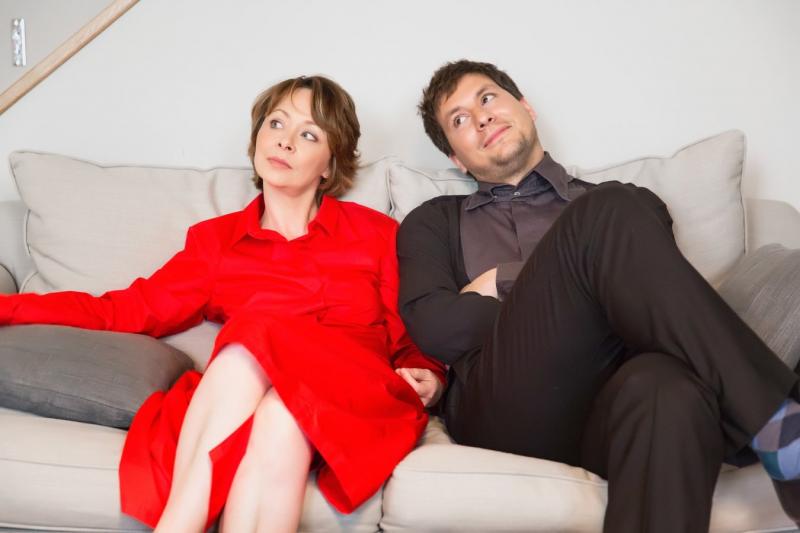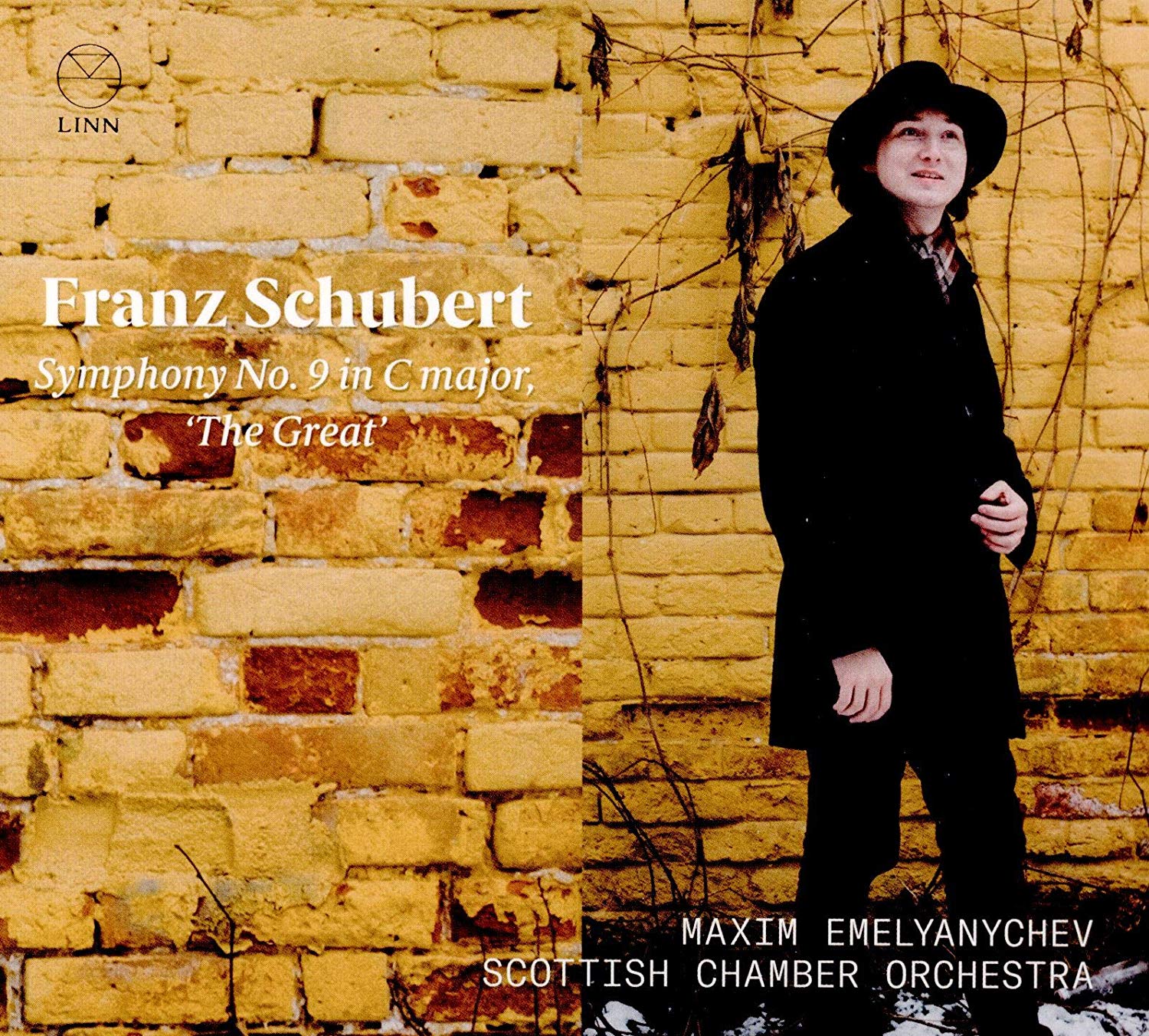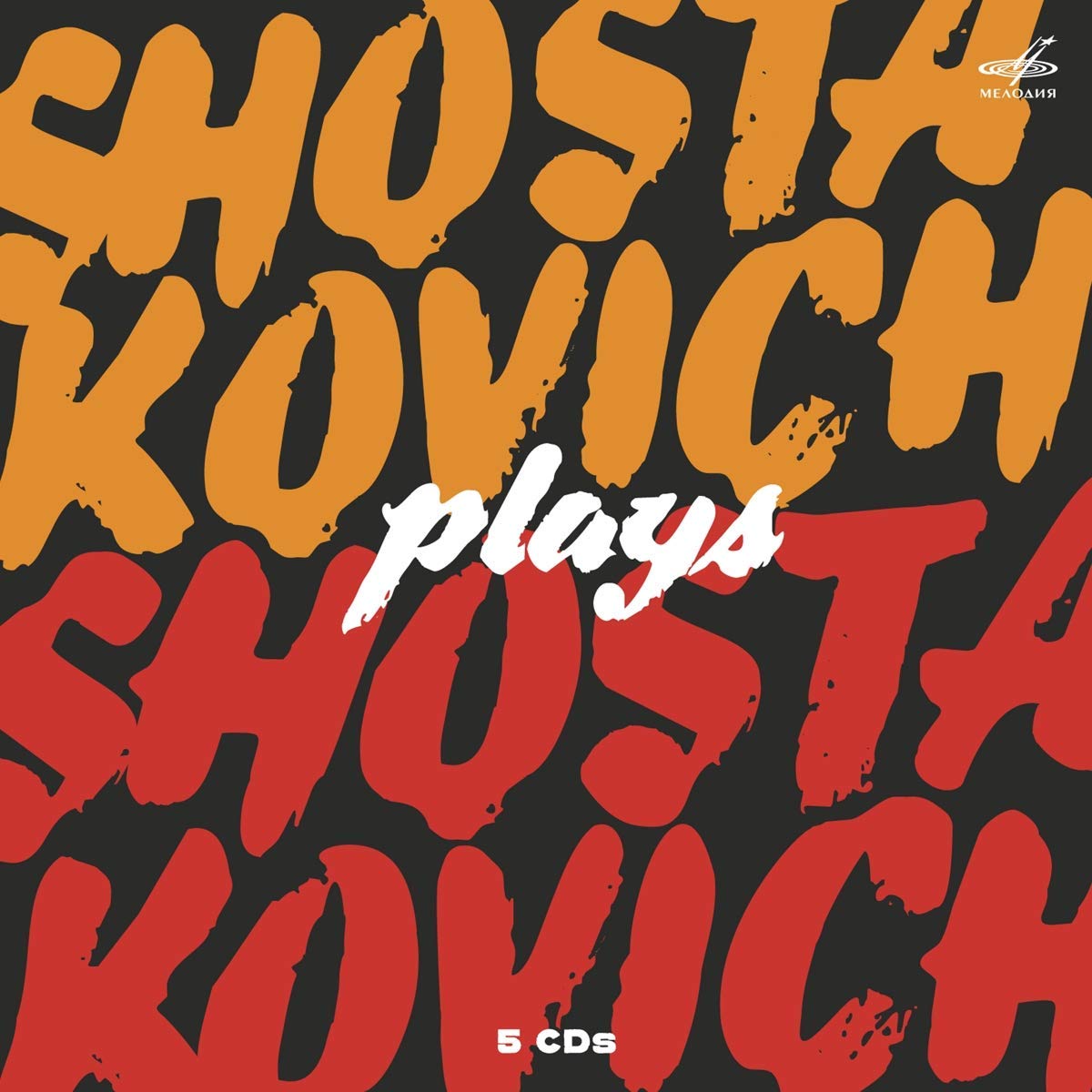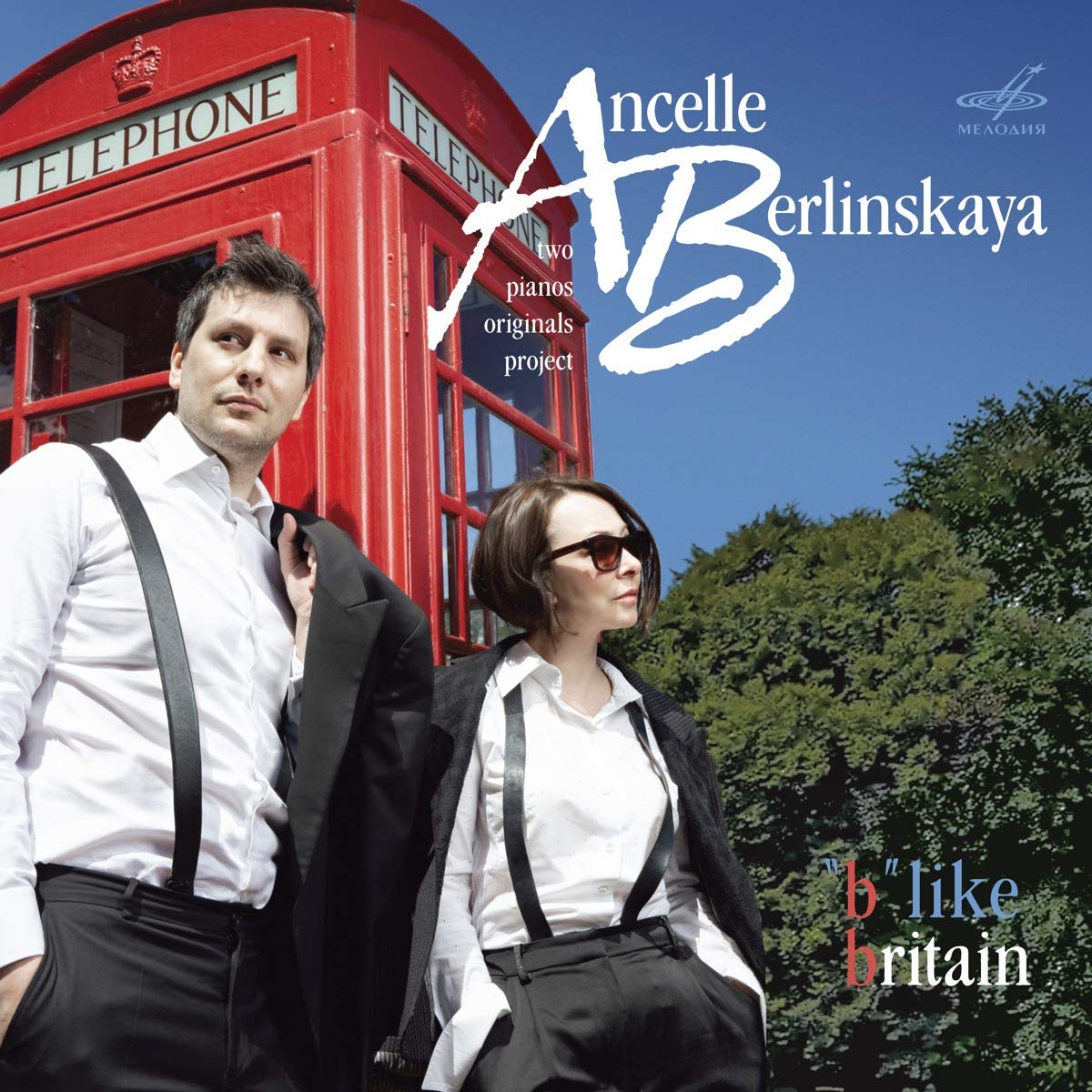Classical CDs Weekly: Schubert, Shostakovich, Berlinskaya-Ancelle Piano Duo | reviews, news & interviews
Classical CDs Weekly: Schubert, Shostakovich, Berlinskaya-Ancelle Piano Duo
Classical CDs Weekly: Schubert, Shostakovich, Berlinskaya-Ancelle Piano Duo
An epic 19th century symphony, historic recordings from a 20th century giant and neglected repertoire for piano duo

 Schubert: Symphony No 9 Scottish Chamber Orchestra/Maxim Emelyanychev (Linn)
Schubert: Symphony No 9 Scottish Chamber Orchestra/Maxim Emelyanychev (Linn)
There’s a telling photo of Maxim Emelyanychev on page 11 of Linn's booklet, the conductor beaming at the camera, the body language suggesting he's having a hard time actually sitting still. This performance of Schubert 9 is impulsive and upbeat, an irrepressibly positive statement. Yes, this is a Ninth Symphony (or eighth, depending on your point of view), but it's still very much a young composer's work. It's possible to make this music sound like Bruckner, but Emelyanychev’s light touch feels entirely right, the symphony's epic size sweetened with plenty of smiles. Natural horns give the opening theme added colour, and the movement's fast main section springs into life. Emelyanychev revels in the shadowy music just before the recapitulation, making the reprise all the more jubilant. Narrow bore trombones have plenty of heft. Every detail tells, without stalling the momentum.
Oboist Robin Williams is peerless in the slow movement’s main theme. The scherzo is swift but never breathless, its echt-Viennese trio swinging just enough. The Scottish Chamber Orchestra’s upper strings are heroic in the finale, the brassy closing pages riotous. You'll want to cheer. Linn's engineering is well up to scratch. Start your 2020 with a bang. Buy this.
 Shostakovich Plays Shostakovich (Melodiya)
Shostakovich Plays Shostakovich (Melodiya)
Many 20th century composer-performers were well served by record companies, Elgar, Britten and Stravinsky in particular leaving superb recorded legacies. Recordings of Shostakovich as pianist are scarcer, one reason being the physical frailties which affected his playing technique. He recorded his two piano concertos in Paris in the late 1950s with André Cluytens for EMI: spirited, if occasionally shaky performances which should be on every shelf. Earlier, less familiar Soviet performance concertos are included in this compelling box set. 1957’s No 1 in particular is marvellous, Shostakovich's witty, deadpan playing matched by some superb, idiomatic trumpet playing from Iosif Volovnik. The precarious final bars come close to collapse, but the sense of purpose is thrilling. Similarly enjoyable is a 1958 performance of the Concertino for two pianos with son Maxim, speeds pushed to breaking point. Describing a CD release as "essential" is fully justified in this case. Hearing Shostakovich perform a selection of his Op. 87 Preludes and Fugues is extraordinary, and we get 1940s recordings of the Cello Sonata and Piano Trio No 2. The latter, with David Oistrakh and Czech cellist Miloš Sádlo is a revelation. Taut and furious, the quiet coda has never sounded bleaker. An impulsive, compelling account of the Piano Quintet taped in 1955 pairs Shostakovich with his beloved Beethoven Quartet. Rarer still is a private performance with Oistrakh of the thorny Violin Sonata, made in 1968 in Shostakovich's Moscow apartment. Though flawed acoustically and technically, it's an incredible document
There's a 1956 account of the song cycle From Jewish Folk Poetry, but most startling of all is a recording of the Tenth Symphony from two years earlier, played as a piano duet with friend and fellow composer Mieczysław Weinberg. It carries an incredible emotional charge. Tempi, and the piano itself, are pushed to the very limit, the sense of release and excitement overwhelming. Wow. The mono recordings have scrubbed up well, and Melodiya’s production values are appealing, the five CDs resembling miniature LPs.
 B like Britain – music for two pianos by Bax, Britten, York Bowen and Richard Rodney Bennett Ludmila Berlinskaya & Arthur Ancelle (pianos) (Melodiya)
B like Britain – music for two pianos by Bax, Britten, York Bowen and Richard Rodney Bennett Ludmila Berlinskaya & Arthur Ancelle (pianos) (Melodiya)
“What if, out of the rich British literature for two pianos, we play only the composers whose names start with B.” As album concepts go, this is pretty niche. Nerds will bemoan the fact that there's no Havergal Brian or Granville Bantock, unless pianists Ludmila Berlinskaya and Arthur Ancelle are saving them for a second volume. What we do get is outstanding though, an anthology of neglected two-piano works by Bax, Britten, Bowen and Bennett. Britten's Op. 23 Two Pieces were written during the composer's wartime exile in America. An “Introduction and Rondo alla Burlesca” is all brittle brilliance, at times suggesting a chillier Poulenc. The introspective “Mazurka Elegiaca” is the stronger piece. They're smartly dispatched by Berlinskaya and Ancelle. The big moments have terrific impact (check out the bell sounds in the mazurka), each chord impeccably balanced. Britten presumably wasn't a fan of Bax. His loss: the Bax works included here are real finds. Hardanger, a musical depiction of the Norwegian fjord, pays exuberant homage to Grieg's Lyric Pieces, and The Poisoned Fountain is a moody nocturne.
You have to marvel at a Russian-French piano duo exhuming such neglected repertoire, and performing it with such authority and affection. Even rarer is the Theme and Variations by York Bowen, stylistically way out of kilter with post-war musical tastes. Bowen’s unassuming, unassertive theme is the spur for 10 quirky variations, my favourite being the thunderous finale. Richard Rodney Bennett's 1974 Divertimento is frothier, its four contrasting dance movements played with abundant punch and a jazzy flexibility which would have delighted the composer.
Share this article
Add comment
The future of Arts Journalism
You can stop theartsdesk.com closing!
We urgently need financing to survive. Our fundraising drive has thus far raised £49,000 but we need to reach £100,000 or we will be forced to close. Please contribute here: https://gofund.me/c3f6033d
And if you can forward this information to anyone who might assist, we’d be grateful.

Subscribe to theartsdesk.com
Thank you for continuing to read our work on theartsdesk.com. For unlimited access to every article in its entirety, including our archive of more than 15,000 pieces, we're asking for £5 per month or £40 per year. We feel it's a very good deal, and hope you do too.
To take a subscription now simply click here.
And if you're looking for that extra gift for a friend or family member, why not treat them to a theartsdesk.com gift subscription?
more Classical music
 Bizet in 150th anniversary year: rich and rare French offerings from Palazzetto Bru Zane
Specialists in French romantic music unveil a treasure trove both live and on disc
Bizet in 150th anniversary year: rich and rare French offerings from Palazzetto Bru Zane
Specialists in French romantic music unveil a treasure trove both live and on disc
 Scottish Chamber Orchestra, Ibragimova, Queen’s Hall, Edinburgh review - rarities, novelties and drumrolls
A pity the SCO didn't pick a better showcase for a shining guest artist
Scottish Chamber Orchestra, Ibragimova, Queen’s Hall, Edinburgh review - rarities, novelties and drumrolls
A pity the SCO didn't pick a better showcase for a shining guest artist
 Kilsby, Parkes, Sinfonia of London, Wilson, Barbican review - string things zing and sing in expert hands
British masterpieces for strings plus other-worldly tenor and horn - and a muscular rarity
Kilsby, Parkes, Sinfonia of London, Wilson, Barbican review - string things zing and sing in expert hands
British masterpieces for strings plus other-worldly tenor and horn - and a muscular rarity
 From Historical to Hip-Hop, Classically Black Music Festival, Kings Place review - a cluster of impressive stars for the future
From quasi-Mozartian elegance to the gritty humour of a kitchen inspection
From Historical to Hip-Hop, Classically Black Music Festival, Kings Place review - a cluster of impressive stars for the future
From quasi-Mozartian elegance to the gritty humour of a kitchen inspection
 Shibe, LSO, Adès, Barbican review - gaudy and glorious new music alongside serene Sibelius
Adès’s passion makes persuasive case for the music he loves, both new and old
Shibe, LSO, Adès, Barbican review - gaudy and glorious new music alongside serene Sibelius
Adès’s passion makes persuasive case for the music he loves, both new and old
 Anja Mittermüller, Richard Fu, Wigmore Hall review - a glorious hall debut
The Austrian mezzo shines - at the age of 22
Anja Mittermüller, Richard Fu, Wigmore Hall review - a glorious hall debut
The Austrian mezzo shines - at the age of 22
 First Person: clarinettist Oliver Pashley on the new horizons of The Hermes Experiment's latest album
Compositions by members of this unusual quartet feature for the first time
First Person: clarinettist Oliver Pashley on the new horizons of The Hermes Experiment's latest album
Compositions by members of this unusual quartet feature for the first time
 Gesualdo Passione, Les Arts Florissants, Amala Dior Company, Barbican review - inspired collaboration excavates the music's humanity
At times it was like watching an anarchic religious procession
Gesualdo Passione, Les Arts Florissants, Amala Dior Company, Barbican review - inspired collaboration excavates the music's humanity
At times it was like watching an anarchic religious procession
 Classical CDs: Camels, concrete and cabaret
An influential American composer's 90th birthday box, plus British piano concertos and a father-and-son duo
Classical CDs: Camels, concrete and cabaret
An influential American composer's 90th birthday box, plus British piano concertos and a father-and-son duo
 Cockerham, Manchester Camerata, Sheen, Martin Harris Centre, Manchester review - re-enacting the dawn of modernism
Two UK premieres added to three miniatures from a seminal event of January 1914
Cockerham, Manchester Camerata, Sheen, Martin Harris Centre, Manchester review - re-enacting the dawn of modernism
Two UK premieres added to three miniatures from a seminal event of January 1914
 Kempf, Brno Philharmonic, Davies, Bridgewater Hall, Manchester review - European tradition meets American jazz
Bouncing Czechs enjoy their Gershwin and Brubeck alongside Janáček and Dvořák
Kempf, Brno Philharmonic, Davies, Bridgewater Hall, Manchester review - European tradition meets American jazz
Bouncing Czechs enjoy their Gershwin and Brubeck alongside Janáček and Dvořák
 Solomon, OAE, Butt, QEH review - daft Biblical whitewashing with great choruses
Even a top soprano and mezzo can’t make this Handel paean wholly convincing
Solomon, OAE, Butt, QEH review - daft Biblical whitewashing with great choruses
Even a top soprano and mezzo can’t make this Handel paean wholly convincing

Comments
Nerds will bemoan the fact
I don't see 'nerd' as a term
I don't see 'nerd' as a term of abuse. I'm happy to be one in many ways, and I'm sure Graham is too. Though I do draw the line at Brian and 'poor old Gran', as Elgar called him. They're quite good for a laugh sometimes (waits for brickbats).
I can only assume that you